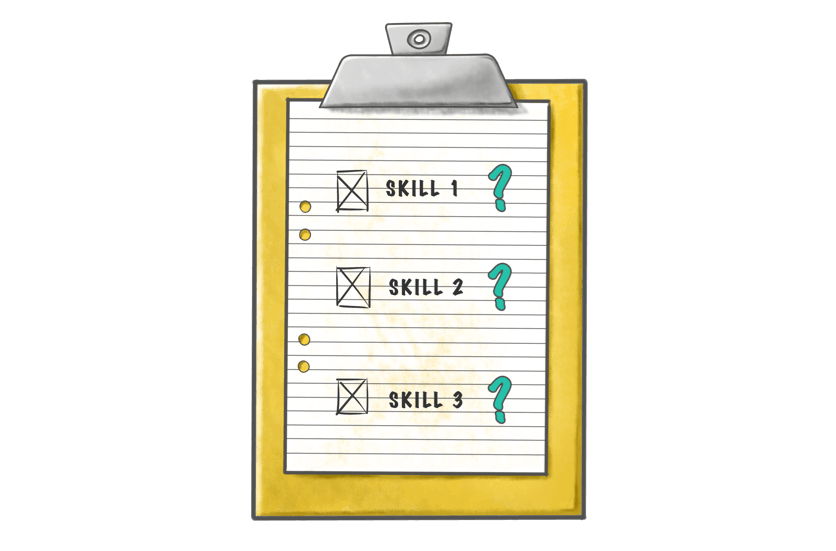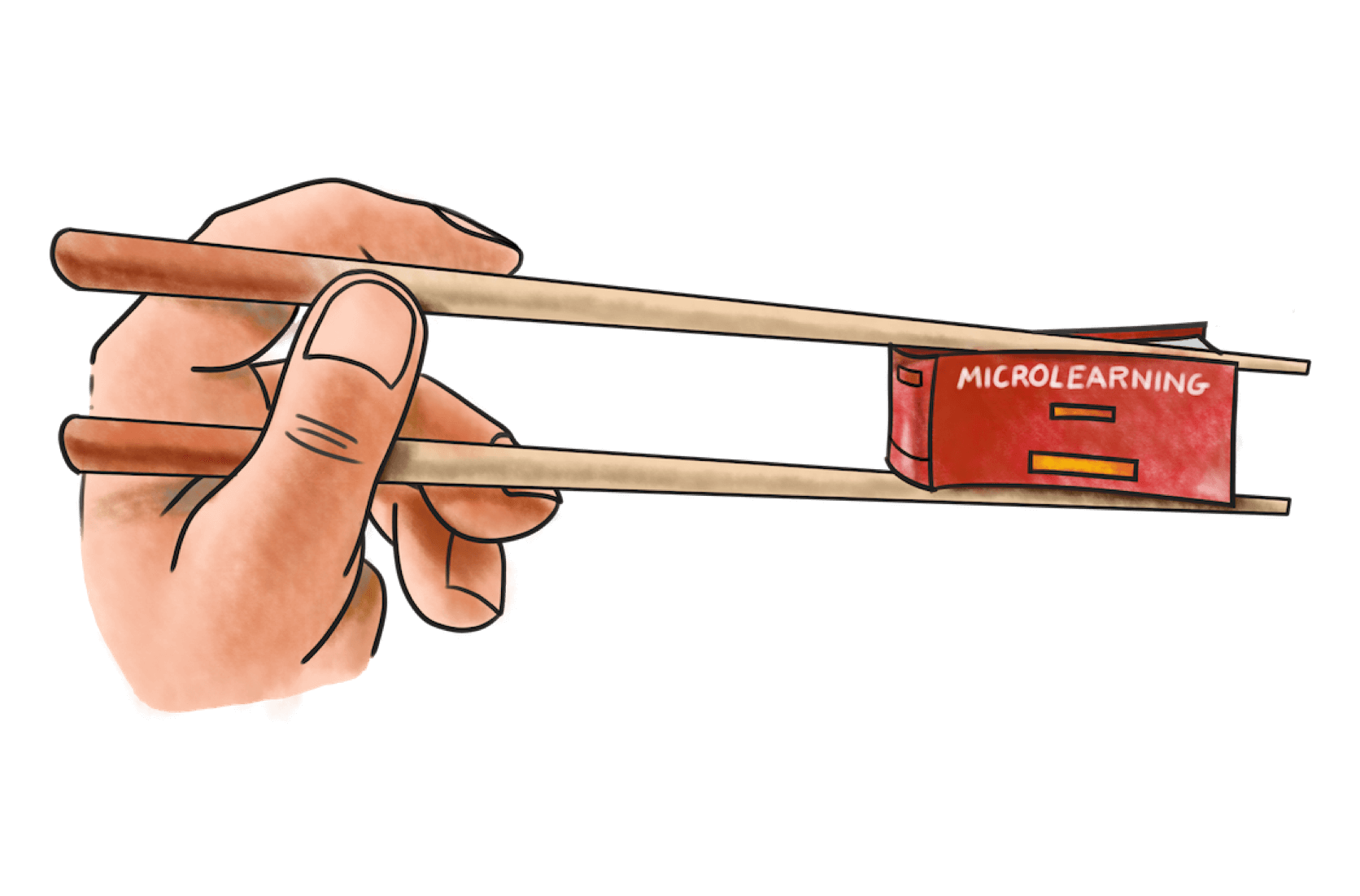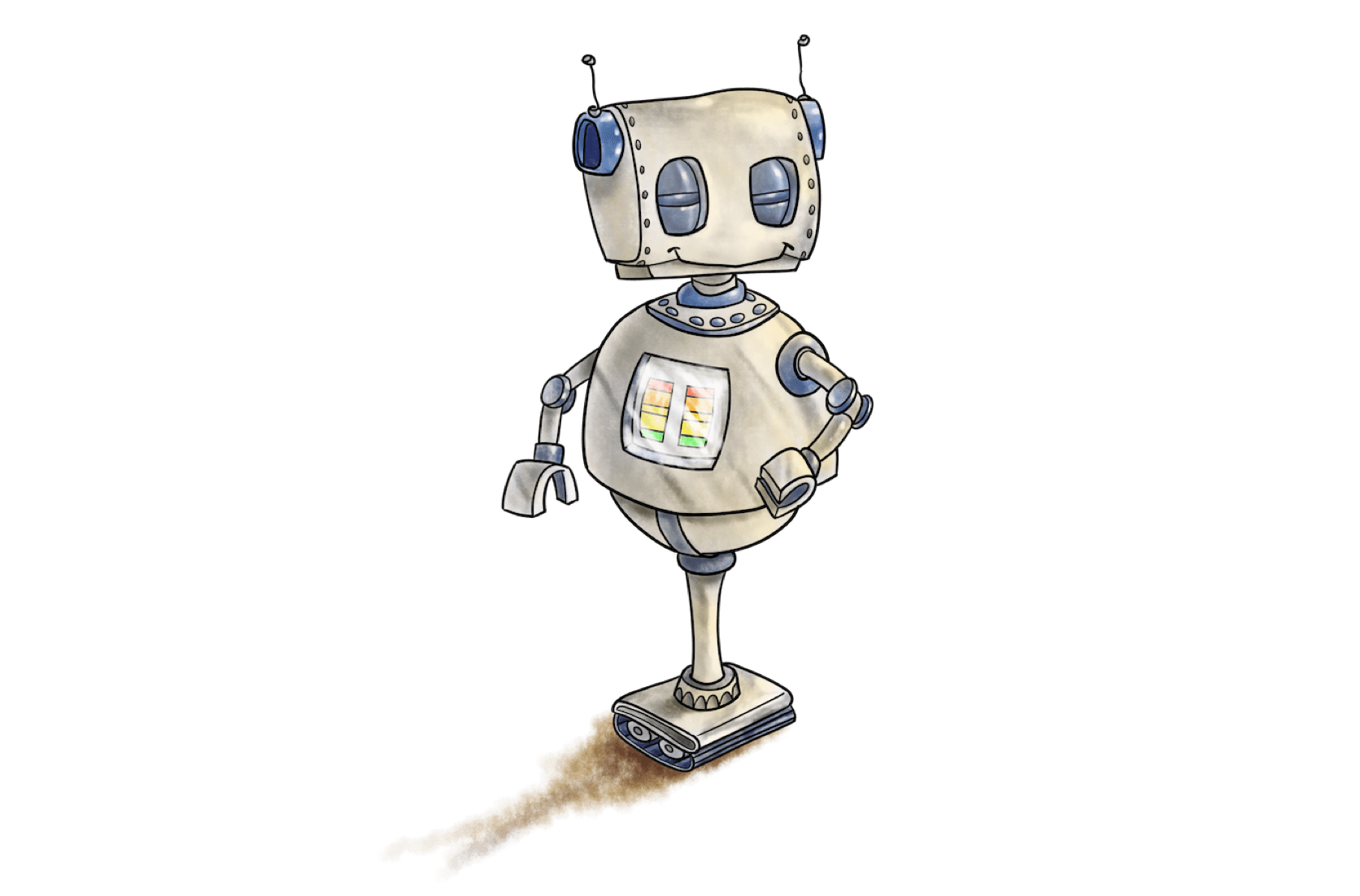
Hello! Welcome back to the latest edition of More Lol = More Learn, presented by Me, Mark Eggers, co-founder of Yarno and self-professed fermentation master (I recently took up making saeurkraut and kombucha).

I am here to discuss with you the very important topic of how and why humour aids knowledge retention.
This is the second instalment in the series, the first discussed why learners failing to pay attention in class or to training is an indictment of the training content, not the learner. Today, we're going to examine studies on how humour aids knowledge retention by looking at a few case studies of popular late night satirical talk shows such as Last Week Tonight with John Oliver. But first I'm going to address a couple objections I'm sure you're thinking of right now:
"But Mark, you're not funny. What business do you have teaching others how to write funny training content?"
First of all: ouch. I may not have my own standup special on Netflix but I have been known to make a person exhale out their nose via a LinkedIn video or two. Second of all: I'm not coaching a How to be funny workshop. I'm just saying that we could all benefit from having a little fun with it and not writing training content that could be accurately described as a tweed jacket with elbow patches.
"Mark, don't you sell a microlearning platform? Why have you spent the last 1,000 words talking about late night comedy shows?"
Well, dear reader, because I think they're a great example of how humour is an asset, not a detractor, when it comes to producing great informational content. I don't think it's silly to act a little silly sometimes, to have a laugh while doing something important.
Okay, objections addressed. Let's get into the good stuff.

Generally: understanding an issue with political satire
In 2019, Mark Boukes conducted a study on whether the Dutch satirical show Zondag Met Lubach triggered agenda-setting effects in regards to the European Union-United States trade agreement Transatlantic Trade Investment and Partnership (TTIP). Phew! That's a mouthful. In other words, basically Boukes was looking into the influence Zondag Met Lubach's reporting had both on an individual's understanding and knowledge of the TTIP and whether it influenced other media outlets to also report on the issue.
Because Boukes is a diligent researcher, before commencing his study he completed a literature review of existing studies into satire and its effects on political discourse. Part of that literature review is worth extracting in full because it's highly relevant to our current topic:
[T]raditional journalism may fail to effectively enlighten the citizenry, because television news could be too fast-paced and complicated for many citizens; moreover, its detached, abstract style might make citizens perceive the news as being irrelevant to their personal lives. Lacking emotional appeal or clear links to the everyday life, traditional news may stop people from paying the necessary attention to understand complex issues.' (Boukes 2019, p. 429) (citations omitted).
What's that? Presenting things abstractly and neutrally isn't entertaining and as a result people are unlikely to fully comprehend the matter at hand? How surprising.

Boukes then goes on to detail how the existing literature on satire reveals that because satire takes the time to contextualise issues and report in language the audience can understand, this aids 'the understanding of complicated issues' and '[t]ogether with [satire's] more detailed level of explanation in combination with everyday language, people will feel more confident about their ability to understand complicated political topics' (Boukes 2019, p. 429) (citations omitted).
Bouke's study backed up these findings in the literature as his study comprising nearly 10,000 participants found that Zondag Met Lubach's portrayal of the TTIP issue positively affected knowledge acquisition and understanding of TTIP among those who viewed the program. All of this is to say something that's pretty intuitive: if you present information in an engaging manner, break it down so your audience can understand it, and maybe even through in a joke or two, people are probably going to understand it better than if you present it in a dense and/or abstract manner. Duh!
Lesson #1: If you want someone to pay attention, give them something to pay attention to. Make it engaging, make it fun, make them want to tune in.
Case study #1: John Oliver's Last Week Tonight
In 2016, Andrew Abad conducted a study designed to investigate the agenda-setting effects of John Oliver's Last Week Tonight. Like Boukes, in his pre-work he found that '[p]olitical comedy programs have proven to be effective in taking complex issues and simplifying them, thereby improving a viewer's understanding'. (Abad 2016, p. 7)
Engagement and motivation
In addition, his research indicated that satirical programs could actually mobilise people to conduct further independent research, such as through engaging with traditional news media on the same topic, as the satirical show provided a grounding of understanding of a particular issue. In turn, making them more interested in the topic and so pursuing other avenues to learn about it.
So basically, by putting an issue in language the viewer can understand, it helps people then understand other coverage on the same topic. Which makes sense - it's like how if you want to learn guitar you can't just jump straight in and first try to learn the sick solo at the end of Hotel California. First you've got to start with some basic chords, then maybe graduate to Smoke on the Water, and then before you know it, you're looking up tabs online and playing in your own Eagles cover band.
Lesson #2: when you make something engaging, you also make something motivating.
The fact that watching satirical shows can cause people to do further research into a topic is really key to me. It says that the impact of your training content, if it's engaging enough, isn't limited to the content itself: people can become engaged in a topic and go off and do their own research into it. That, for me, is really exciting. We have anecdotal evidence of this at Yarno, as we get a lot of feedback that our learners often discuss the topics from their daily questions among themselves, and I've even heard a rare tale of truckies consulting a manual after getting a question wrong!
Engagement and real-world mobilisation
Last Week Tonight is a particularly interesting example because of the vast real-world effects it has generated. For example, after the airing of its episode covering the Miss America Pageant, viewers donated upwards of $25,000 to the Society of Women Engineers. Another big example is the episode on Net Neutrality laws during which Oliver stated to the camera, "Seize your moment, my lovely trolls...Turn on the caps lock and fly, my pretties!"
The segment was in response to the Federal Communication Commission (FCC) proposing to adopt measures which would reduce the neutrality of the Internet. The response to the segment was massive - the Monday after the episode aired, the FCC's website crashed after over 45,000 comments were left on the site to oppose the measures being adopted. And, despite the FCC supposedly watching the segment and laughing, they ultimately voted to maintain the neutrality of the Internet (Abad, p. 3).
What do these examples tell us? For me, it says that just because something is humorous doesn't mean it's not serious. Last Week Tonight isn't just a comedy program and it's not just a news program. It's both, and it's effect isn't diminished by that, it's actually amplified. People take it seriously enough to take real world action off the back of it not despite but because it utilises humour to make its point. It's serious journalism put into words we can understand and which even makes us laugh. It mobilises us, it gets the people going (literally).
Lesson #3: Humour is powerful. If John Oliver can mobilise 45,000 commenters to crash the FCC website, maybe if we write some great content we can mobilise people to implement the skills they learn in it?!? It's a big dream, but one I'm sure we can reach.
Case study #2: ABC's The Checkout
The Competition and Consumer Act 2010 (Cth) is a behemoth. It spans three volumes, nearly 1500 pages, and is nearly incomprehensible to the layman. And tucked away in it, in Schedule 2, is the Australian Consumer Law, which is a national statutory scheme which applies to every consumer transaction in Australia. And contained in that, are rights that each of us has when we make a purchase as a consumer.
Great! We've got rights, they're designed to protect us from dodgy transactions and provide compensation to us when something's fallen afoul. The problem is, of course, that you can't use your rights if you don't know what they are. As they say in the clip from The Checkout I've linked below, when you get arrested, the cops have to read you your rights. The same isn't true when you buy something from a shop. The salesperson just takes your money and sends you on your way.
That's where The Checkout comes in. An ABC program written to decode the behemoth and help us all learn and flex our consumer law rights, should we ever need to do so. Check out the video below - it explains the consumer law guarantees that are implied into every consumer purchase in Australia. It takes legalese and translates it into understandable English, contextualises the information AND is packed with about a joke every 15 seconds. I actually laughed out loud watching it and I learnt a lot. That's right folks, it's not just a catchy article title: the more I LOL-ed, the more I learnt.
The Checkout is doing a public service AND they're making us laugh along the way. And I don't know about you, but I'd much rather watch their 7 minute video on Consumer Law guarantees than dig through 1,500 pages of the Competition and Consumer Law Act. You shouldn't need a law degree to avoid being swindled at the checkout, and The Checkout is making sure that's not the case.
Wrap up
I think we can all learn a few lessons from satire. In my opinion, a lot of 'traditional' education and training places the onus on the learner: it's up to them to do the hard work and force themselves to pay attention to dry, un-engaging material. I think we should shift that onus. We're providing a service: education. If the chef at a restaurant told you to cook your own steak you'd walk out of there quick as a flash, go home, and write a very sternly worded Yelp review. If you're not working to make your learning content engaging for the learner, in my opinion, you're basically asking them to cook their own steak. Yeah, I'm sure we can all throw a T-Bone on the barbie and do an OK job of it, but it's just not going to get the same results as having a chef cook it for you. So, educators, training providers, instructional designers and everyone else involved in the learning industry, I urge you: you're the chef, it's time to put that funny hat on and crack out the wagyu.
References
Abad, A. 2016, ‘Exploring Intermedia Agenda Setting Effects of Last Week Tonight with John Oliver’, Louisiana State University.
Boukes, M. 2019, ‘Agenda-Setting With Satire: How Political Satire Increased TTIP’s Saliency on the Public, Media, and’, Political Communication, vol. 36, no. 3, p. 27.













































































































